#Elie wiesel day
Explore tagged Tumblr posts
Text
Day - Elie Wiesel
"The publication of Day restores Elie Wiesel's original title to the novel initially published in English as The Accident and clearly establishes it as the powerful conclusion to the author's classic trilogy of Holocaust literature, which includes his memoir Night and novel Dawn. "In Night it is the ‘I' who speaks," writes Wiesel. "In the other two, it is the ‘I' who listens and questions."
In its opening paragraphs, a successful journalist and Holocaust survivor steps off a New York City curb and into the path of an oncoming taxi. Consequently, most of Wiesel's masterful portrayal of one man's exploration of the historical tragedy that befell him, his family, and his people transpires in the thoughts, daydreams, and memories of the novel's narrator. Torn between choosing life or death, Day again and again returns to the guiding questions that inform Wiesel's trilogy: the meaning and worth of surviving the annihilation of a race, the effects of the Holocaust upon the modern character of the Jewish people, and the loss of one's religious faith in the face of mass murder and human extermination."
Read Date - July 2024
Length - 109 pages
Genre - Fiction, Historical, Holocaust
Rating - 5/10
Stars - ★★☆☆☆
Notes - The scene with the sailors was interesting, because Kathleen just wants to know is Elie loves her or not. The accident between Elie was really sudden and I didn’t expect it to happen. Elie questioning his religion is interesting because you never expect it. Either, him to be religious after the holocaust, or him NOT being religious at all. The in between stages are interesting as all hell. The sea scene with Elie talking to a stranger was heartfelt and it shows how certain people will never be able to accept him, and some of the things he’s said and done. This holds true, even today. The love between Kathleen and Elie is strong but pure. The sex scene was semi-toxic but what more could you expect from Elie Wiesel. I think the talk with the doctor was actually really cool and I liked his perspective of Religion and Medicine. The horrors of the Holocaust are also racked full in this novel, which is why I believe everyone should read it. It also show’s how Zionists believe/view Palestine, which is also important. The talk of love was very sweet, and I generally agree with the sentiment being made. The talks of pedophilia was extremely horrific and it’s terrifying to listen to it, knowing these are real stories. Kathleen falling ill was a sad storyline (real life, i know) The talk with Kathleen towards the end of the book where Elie promises to forget the past and think only about their love was different. It reminded me of flashbacks, but in a way i don’t relate to. The part with the artist was kinda cute and I like the truth behind it. The reveal that Elie could’ve avoided the cab was poignant and show’s the survivors guilt he’s suffering with.

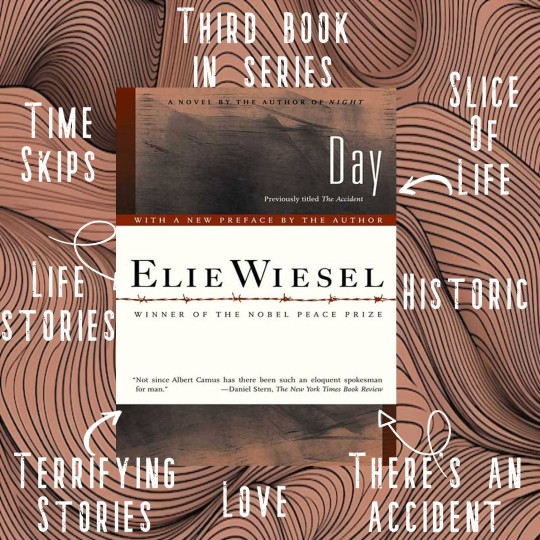

#Books#Book#Reading#Reader#Books And Reading#Bookworm#Bookblr#Book Reviews#Review#Book Blog#Book Lover#Bookish#Book Community#Bookstagram#Booktok#Day#Elie Wiesel#Elie wiesel day
0 notes
Text
"Night is purer than day; it is better for thinking and loving and dreaming. At night everything is more intense, more true. The echo of words that have been spoken during the day takes on a new and deeper meaning. The tragedy of man is that he doesn't know how to distinguish between day and night. He says things at night that should only be said by day."
-Elie Wiesel, Dawn
#elie wiesel#dawn#dawn book#night dawn day#quotes#nightlife#books#litereature#book recommendations#jewish#judaism
2 notes
·
View notes
Text
in honor of that anon who said jews have done nothing for the world, here’s a non exhaustive list of things we’ve done for the world:
arts, fashion, and lifestyle:
jeans - levi strauss
modern bras - ida rosenthal
sewing machines - isaac merritt singer
modern film industry - carl laemmle (universal pictures), adolph zukor (paramount pictures), william fox (fox film forporation), louis b. mayer (mgm - metro-goldwyn-mayer), harry, sam, albert, and jack warners (warner bros.), steven spielberg, mel brooks, marx brothers
operetta - jacques offenbach
comic books - stan lee
graphic novels - will eisner
teddy bears - morris and rose michtom
influential musicians - irving berlin, stephen sondheim, benny goodman, george gershwin, paul simon, itzhak perlman, leonard bernstein, bob dylan, leonard cohen
artists - mark rothko
actors - elizabeth taylor, jerry lewis, barbara streisand
comedians - lenny bruce, joan rivers, jerry seinfeld
authors - judy blume, tony kushner, allen ginsberg, walter mosley
culture:
esperanto - ludwik lazar zamenhof
feminism - betty friedan, gloria steinem, ruth bader ginsberg
queer and trans rights - larry kramer, harvey milk, leslie feinberg, abby stein, kate bornstein, frank kameny, judith butler
international women's day - clara zetkin
principles of journalizm, statue of liberty, and pulitzer prize - joseph pulitzer
"the new colossus" - emma lazarus
universal declaration of human rights - rene samuel cassin
holocaust remembrance and human rights activism - elie wiesel
workers rights - louis brandeis, rose schneiderman
public health care, women's rights, and children's rights - lillian wald
racial equity - rabbi abraham joshua heschel, julius rosenwald, andrew goodman, michael schwerner
political theory - hannah arendt
disability rights - judith heumann
black lives matter slogan and movement - alicia garza
#metoo movement - jodi kantor
institute of sexology - magnus hirschfeld
technology:
word processing computers - evelyn berezin
facebook - mark zuckerberg
console video game system - ralph henry baer
cell phones - amos edward joel jr., martin cooper
3d - leonard lipton
telephone - philipp reis
fax machines - arthur korn
microphone - emile berliner
gramophone - emile berliner
television - boris rosing
barcodes - norman joseph woodland and bernard silver
secret communication system, which is the foundation of the technology used for wifi - hedy lamarr
three laws of robotics - isaac asimov
cybernetics - norbert wiener
helicopters - emile berliner
BASIC (programming language) - john george kemeny
google - sergey mikhaylovich brin and larry page
VCR - jerome lemelson
fax machine - jerome lemelson
telegraph - samuel finley breese morse
morse code - samuel finley breese morse
bulletproof glass - edouard benedictus
electric motor and electroplating - boris semyonovich jacobi
nuclear powered submarine - hyman george rickover
the internet - paul baran
icq instant messenger - arik vardi, yair goldfinger,, sefi vigiser, amnon amir
color photography - leopold godowsky and leopold mannes
world's first computer - herman goldstine
modern computer architecture - john von neumann
bittorrent - bram cohen
voip internet telephony - alon cohen
data archiving - phil katz, eugene roshal, abraham lempel, jacob ziv
nemeth code - abraham nemeth
holography - dennis gabor
laser - theodor maiman
instant photo sharing online - philippe kahn
first automobile - siegfried samuel marcus
electrical maglev road - boris petrovich weinberg
drip irrigation - simcha blass
ballpoint pen and automatic gearbox - laszlo biro
photo booth - anatol marco josepho
medicine:
pacemakers and defibrillators - louise robinovitch
defibrillators - bernard lown
anti-plague and anti-cholera vaccines - vladimir aronovich khavkin
polio vaccine - jonas salk
test for diagnosis of syphilis - august paul von wasserman
test for typhoid fever - ferdinand widal
penicillin - ernst boris chain
pregnancy test - barnhard zondek
antiretroviral drug to treat aids and fight rejection in organ transplants - gertrude elion
discovery of hepatitis c virus - harvey alter
chemotherapy - paul ehrlich
discovery of prions - stanley prusiner
psychoanalysis - sigmund freud
rubber condoms - julius fromm
birth control pill - gregory goodwin pincus
asorbic acid (vitamin c) - tadeusz reichstein
blood groups and rh blood factor - karl landsteiner
acyclovir (treatment for infections caused by herpes virus) - gertrude elion
vitamins - caismir funk
technique for measuring blood insulin levils - rosalyn sussman yalow
antigen for hepatitus - baruch samuel blumberg
a bone fusion technique - gavriil abramovich ilizarov
homeopathy - christian friedrich samuel hahnemann
aspirin - arthur ernst eichengrun
science:
theory of relativity - albert einstein
theory of the electromagnetic field - james maxwell
quantum mechanics - max born, gustav ludwig hertz
quantum theory of gravity - matvei bronstein
microbiology - ferdinand julius cohn
neuropsychology - alexander romanovich luria
counters for x-rays and gamma rays - robert hofstadter
genetic engineering - paul berg
discovery of the antiproton - emilio gino segre
discovery of cosmic microwave background radiation - arno allan penzias
discovery of the accelerating expansion of the universe - adam riess and saul merlmutter
discovery that black hole formation is a robust prediction of the general theory of relativity - roger penrose
discovery of a supermassive compact object at the center of the milky way - andrea ghez
modern cosmology and the big bang theory - alexander alexandrovich friedmann
stainless steel - hans goldschmidt
gas powered vehicles
interferometer - albert abraham michelson
discovery of the source of energy production in stars - hans albrecht bethe
proved poincare conjecture - grigori yakovlevich perelman
biochemistry - otto fritz meyerhof
electron-positron collider - bruno touschek
3K notes
·
View notes
Quote
His act is way tired. It’s now nine years of “Fake news” and “You won’t have a country anymore” and all the rest. In 2015, all those Trumpisms were stupid and disgusting; but at least they were new. I actually laughed when he described Jeb Bush as a “low-energy person.” He was! I could imagine then how, for voters who didn’t hate him, he was interesting and possibly amusing as a species that American politics rarely produces: someone who threw the script in the air and said whatever the hell popped into his mind. That was bound to be something people wanted to watch, for a while. And it was just as bound to be something that became less compelling over time. It’s an act. And this is a key difference between politics and show business that Trump can’t see. In showbiz, and on TV, it’s all about whether the production values can sell the act. In politics, it turns out, the act needs more than slick production. It still needs to show some connection to people’s lives and concerns. Harris is better at that than Trump is. And her act is a lot fresher, too. And Walz’s act versus Vance’s? Not remotely close. Yes—Walz is so compelling, and Vance so repelling, that this is one election where the veep choices may actually make two points’ worth of difference. None of this means Trump is finished. Happy Days lasted several seasons after it literally jumped the shark. But the ratings did start to fall soon enough. No one ever hated Fonzie, like many do Trump. But even fans of the show became a lot less invested in it. My old friend reminded me of the quote by Elie Wiesel: “The opposite of love is not hate. It’s indifference.”
Donald Trump Has Totally Jumped the Shark
563 notes
·
View notes
Text
Night is purer than day; it is better for thinking and loving and dreaming. At night everything is more intense, more true. The echo of words that have been spoken during the day takes on a new and deeper meaning.
Elie Wiesel
#elie wiesel#quotes#literature#writing#words#thoughts#prose#poetry#poesy#spilled ink#life quote#quoteoftheday#words to live by#good words
103 notes
·
View notes
Text
I met my younger selves for tea service today. (We don’t drink coffee.)
I greeted all of them with platters of scones and tea sandwiches, a variety of pots of tea. I shared with them the state of the world.
14 yr old me, who was voted "most likely to become president", was disappointed that we still had not elected a woman president yet. She was excited that we still wrote stories though.
17 yr old me, who had just finished studying Elie Wiesel's Night, asked how the hell did n*z*s gain popularity again? She then quoted our AP US History teacher... "US democracy is only about 200 years old. We don't know if it actually works. It's still too young." (This quote has always followed me but has haunted me since Nov. 8, 2016.)
20 yr old me, who just had a front row seat to the destruction of the Twin Towers, said to look for the helpers. Be the helpers.
27 yr old me, in grad school when the recession happened, said she hope I was still baking. I tell her I've delved into sourdough and she said she's not sure how she feels about that. I tell her it's not superior to the yeasted bread recipe she's been using for over a decade, but it's very good in a different way. I tell her our cheesecake is still phenomenal though. She nodded her approval.
Then she said, "fuck the patriarchy".
32 yr old me, a new mother, both hands cupping her chai, was unsure of what to do with herself without her child. I tell her it will be OK. You are doing your best. You really need to get some sleep though. But she asks "How? He never sleeps." And I squeeze her hand and tell her, this will pass.
35 yr old me, a mother again, asks why she should go on knowing what I know now. I tell her because there is still love in this world. Because there are people that love you and that you love. There is still joy in the world, despite the dumpster fire. You really need sleep. And therapy. But mostly sleep.
40 yr old me, right in the middle of COVID, said, "Are you fucking kidding me?! How the fuck did he get elected again?! What the actual fuck?" And I explain that there were things set in motion probably before we were born and the right conditions have allowed those things to align to fruition. Then she said, "Well what are we doing about it?"
We fight. We call and write our senators and congress people and remind them that the legislative branch is supposed to check the executive branch. We protest where we can. We support local. We educate where we can. Resistance comes in many forms.
We fight for our younger selves. Be the hero your younger self would look up to. Be the person your younger self wanted to grow up to be.
We end brunch with a sing along (because that's what theater kids do). Seasons of Love followed by Do You Hear the People Sing?
I hugged all of them, which was weird for all of us (younger versions of me wasn't hugged very much so there was a learning curve).
And I leave with the fire of my younger selves fueling me to fight another day.
117 notes
·
View notes
Text
•.˚✦𓂃☆.•.・❥・.✭..•.
"Night is purer than day; it is better for thinking, loving, and dreaming. At night, everything is more intense, more true." .•.˚☆࿐

—Elie Wiesel
77 notes
·
View notes
Text
🧵Meet 15 Jewish Nobel Prize Winners Who Changed History🧵
The Jewish population constitutes just 0.18% of the world (15.3 million out of 8.2 billion), yet approximately 20-30% of Nobel Prize winners in fields like Physics, Chemistry, and Medicine are Jewish. This incredible fact highlights the Jewish community's historic contributions to humanity.
Let’s meet just 15 of the over 200 Jewish Nobel Prize winners.
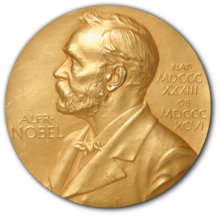
1/ Albert Einstein (1921, Physics).
Einstein was born in Germany to a secular Jewish family. His groundbreaking discovery of the photoelectric effect laid the foundation for quantum mechanics, earning him the Nobel Prize.
▪ His theory of relativity (E=mc²) reshaped our understanding of gravity and spacetime.
▪In 1933, Einstein fled Nazi Germany to the U.S., where he became a vocal advocate for civil rights and Zionism. ▪He helped inspire the Manhattan Project but later became an advocate for nuclear disarmament.

2/ Niels Bohr (1922, Physics).
Born in Denmark to a Jewish mother, Bohr revolutionized atomic physics.
▪His Bohr Model showed electrons orbit the nucleus in distinct energy levels. ▪During WWII, Bohr worked on the Manhattan Project after escaping Nazi persecution. ▪Beyond science, Bohr advocated for global cooperation and peaceful nuclear energy use.
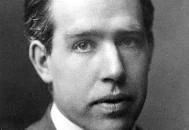
3/ Shmuel Yosef Agnon (1966, Literature).
Born in Galicia (modern-day Ukraine), Agnon immigrated to Ottoman Palestine in 1908.
▪His novels and stories delve into Jewish tradition, spirituality, and the tension between modernity and faith. ▪His acclaimed works include A Simple Story and Only Yesterday. ▪Agnon’s Nobel solidified Hebrew literature's global recognition.
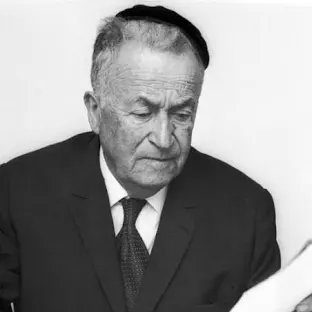
4/ Rosalyn Yalow (1977, Medicine).
Yalow, born in New York to a Jewish family, co-developed radioimmunoassay (RIA), a groundbreaking technique to measure hormones in blood.
▪Her work revolutionized the diagnosis and treatment of diseases like diabetes. ▪Despite gender biases in science at that time, she became the second woman to win the Medicine Nobel.
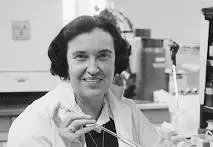
5/ Baruch Blumberg (1976, Medicine).
Blumberg, a Jewish-American physician, discovered the Hepatitis B virus and developed its vaccine.
▪His research saved millions from liver disease and cancer.
▪Blumberg also served as the first director of NASA’s Astrobiology Institute, exploring life’s origins in the universe.
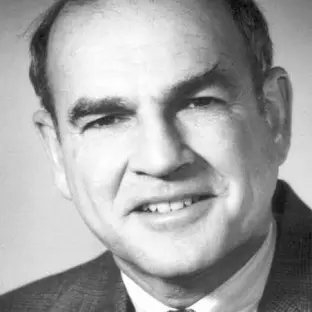
6/ Lev Landau (1962, Physics)
Born in Baku, Azerbaijan, to a Jewish family, Landau made ground-breaking contributions to condensed matter physics and quantum mechanics.
▪His groundbreaking work on superfluidity explained the behavior of liquid helium at extremely low temperatures. ▪Landau also developed the "Landau-Lifshitz equations," foundational in describing ferromagnetism. ▪Known as a genius in theoretical physics, his "Landau Levels" remain crucial in quantum mechanics.

7/ Richard Feynman (1965, Physics).
Feynman, born to Jewish parents in New York, shared the Nobel for his work in quantum electrodynamics (QED).
▪Known for his brilliance and humor, he revolutionized particle physics with "Feynman diagrams." ▪He contributed to the Manhattan Project and inspired countless scientists through his lectures and books like Surely You’re Joking, Mr. Feynman!
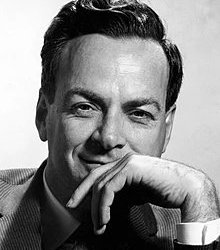
8/ Elie Wiesel (1986, Literature).
A Romanian-born Holocaust survivor, Wiesel wrote Night, a searing memoir of his Auschwitz experience.
▪He dedicated his life to Holocaust education and combating hatred. ▪Wiesel’s Nobel recognized his literary contributions, ensuring the horrors of the Holocaust were never forgotten.
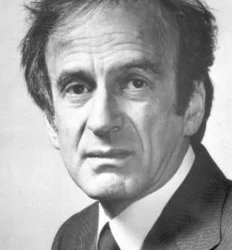
9/ Herbert Hauptman (1985, Chemistry).
Hauptman, a Jewish-American mathematician, co-developed direct methods for solving crystal structures, revolutionizing crystallography.
▪His work paved the way for advances in drug design, enabling scientists to develop life-saving medications. ▪Hauptman’s methods remain foundational in understanding molecular structures in biology and medicine.
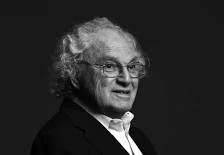
10/ Robert Aumann - Yisrael Aumann. (2005, Economics).
An Israeli-American mathematician, Aumann revolutionized game theory, analyzing strategic interactions between rational decision-makers.
▪His work, particularly on "repeated games," has applications in economics, military strategy, and even evolutionary biology. ▪Aumann is an observant Orthodox Jew and has been a vocal advocate for Israel's security and has connected his mathematical insights with the Talmudic concept of fairness and justice. He often reflects on his Jewish heritage in his work and public speeches.
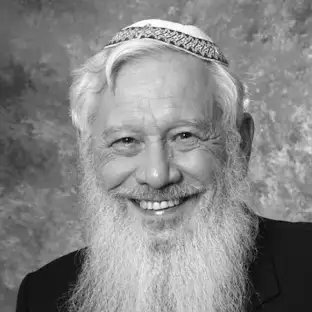
11/ Aaron Ciechanover (2004, Chemistry).
Ciechanover, born in Haifa, Israel, discovered the ubiquitin-mediated protein degradation system.
▪This mechanism explains how cells identify and destroy faulty or damaged proteins, which is essential for maintaining health. ▪His findings have significant implications for treating diseases like cancer, Alzheimer's, and Parkinson's.
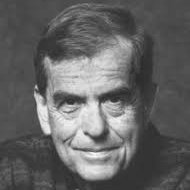
12/ Avram Hershko (2004, Chemistry).
Hershko, born in Hungary and a Holocaust survivor, worked alongside Ciechanover on the ubiquitin system.
▪His research showed how proteins are tagged for destruction, which is vital for cellular health. ▪Hershko’s journey from surviving the Holocaust to becoming a Nobel laureate highlights the resilience and brilliance of Jewish scientists.
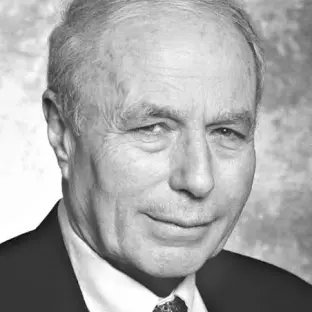
13/ Daniel Kahneman (2002, Economics).
Kahneman, born in Tel Aviv, is a psychologist whose work transformed economics.
▪He co-authored Thinking, Fast and Slow, exploring how cognitive biases affect decision-making. ▪His prospect theory explained how people assess risk, challenging classical economic theories of rationality.
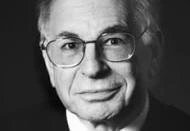
14/ Ada Yonath (2009, Chemistry).
An Israeli crystallographer, Yonath is celebrated for uncovering the 3D structure of ribosomes, the cell's protein factories.
▪Her work advanced the development of antibiotics targeting bacterial ribosomes, combating antibiotic resistance. ▪Yonath is the first Israeli woman to win the Nobel Prize in Chemistry.
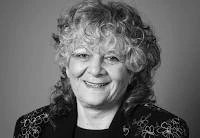
15/ Saul Perlmutter (2011, Physics).
An astrophysicist from Berkeley, Perlmutter co-discovered that the universe’s expansion is accelerating due to "dark energy."
▪His work confirmed the existence of this mysterious force, which makes up about 68% of the universe. ▪Perlmutter’s groundbreaking discovery led to a wave of new theories and observations in cosmology, changing how we understand the cosmos and our place within it.
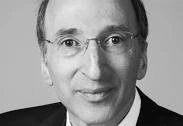
Conclusion.
Of the 976 individual winners of the Nobel Prize and the Nobel Memorial Prize in Economic Sciences from 1901 through 2024, at least 217 have been Jews or people with at least one Jewish parent, an astonishing 22% of all recipients.
This amazing achievement underlines the huge contribution that the Jewish community has made to world progress in a wide range of areas, from science and medicine to literature and economics.
With only 0.2% of the world's population, Jewish people have continued to shape and inspire the world with intellectual perseverance and innovation, thus leaving a lasting legacy for future generations.
Correction *Jewish population is at 15.8 million.
Correction: Wiesel won for peace.
@AP_from_NY
56 notes
·
View notes
Text



Today, on January 27 (International Holocaust Remembrance Day), we honor the memory of the millions of people who were separated from their families, tortured and executed by Nazi Germany between 1933 and 1945. The Shoah was a crime against humanity, a genocide that caused the death of more than a third of Jewish people in the world and of several individuals from minorities. We must never forget the atrocities committed by Nazi Germany, never downplay what happened and, most importantly, make sure that we learn from history and don’t perform those evil deeds again.
Here are 10 book recommendations if you wish to know more about the horrors of the Holocaust: -The Diary of a Young Girl, Anne Frank -The Book Thief, Markus Zusak -Man’s Search for Meaning, Viktor E. Frankl -If This Is a Man, Primo Levi -Night, Elie Wiesel -Suite Française, Irène Némirovsky -Schindler’s List, Thomas Keneally -Final Solution, David Cesarani -By Chance Alone, Max Eisen -The Happiest Man on Earth, Eddie Jaku
#shoah#jewish history#jewish#crime against humanity#genocide#naziism#antisemitism#book recommendations
20 notes
·
View notes
Note
(I know this ask game is from a few days ago so. Maybe you're not doing this anymore but in case you are:) 📕 Whats your favorite Jewish book to study?
I'll include all of my favorite authors/books in no particular order!
Rabbi Harold Kushner (z"l) was one of the first jewish authors I intentionally read and I loved the books I read of his. I especially loved how gentle, real, and understanding he was and how real he was.
Elie Wiesel (z"l). Need I say more. I wish I spoke yiddish so I could read his books unadulterated, but regardless, his works were (and are) important to me and helped shape me
Tehillim. Just all of it. I have so much to say about them as a collection, but that would take forever.
Jewish with Feeling (Zalman Schachter-Shalomi). My rabbi had me read this book, and similarly to Kushner, I appreciated how kind and non-judgemental the narrative was.
I mostly read any jewish books with the intention to study (I don't necessarily read for leisure or escape), so I wanted to include as many diverse things as I could. I haven't read enough torah or other overtly-religious text yet to include a specific one, but I have read moments in the torah that I loved (I could rant for hours about when g-d told moses, "I am that I am")
Thanks for letting me rant!!!🩵
#ask#jumblr#ask game#jewish ask game#personal thoughts tag#long post#YAYYY<3#let's all gather in a circle and thank g-d for books
22 notes
·
View notes
Text
My dad told me he raised me better than to be a liberal.
You left me for 12-16 hours a day with my grandmother, a die hard liberal catholic who spoke English, Spanish, French, Latin, and Dutch just because she wasn’t going to make anybody learn a new language to accommodate her. The woman who loved and accepted anybody regardless of race, ethnicity, religion, sexuality, or gender. And you expect me to hate those different from me?
I was raised on a steady stream of Captain Planet and Steve Irwin. I minored in Biology because I cared so much about ecology and zoology. And you expect me to not care about the environment.
Anne Frank was required reading, multiple times. Night, by Elie Wiesel was my required reading with a multi-page report. Those AP history classes you praised me for? We learned about genocide and inequality. And you expect me to stand by while marginalized groups are targeted?
You taught me to be a strong capable woman who can take care of my own household, finances, handiwork, yard work, and car maintenance. Yet you are angry that I am a self sufficient, successful, opinionated woman.
I was raised reading and watching media about young people overthrowing corrupt governments. And you actively vote in a corrupt government and expect me to just sit idly by.
No. I will not.
I will not hate those different than me.
I will not abandon the environment.
I will not allow marginalized groups to suffer.
I will not stay silent.
I will not be idle.
You Raised Me Better Than That
17 notes
·
View notes
Note
Your book will forever sit atop my to be read list even though I know I won’t ever know what it is (I totally understand why)
And I think about that at least once a day (and every time I go into a bookstore).
I would love to know if you have any other suggestions within your genre because I need to branch out from just ready non fiction, mystery, and fantasy
Bless you!
Every time we go into a bookstore Mr Balls makes a habit of pulling some stunt like “if ONLY i knew the FREAK who wrote [book name]! ah the things i would tell them! WHO could it be?”
And of course, here are some of my favourite authors, generally ‘world literature’ names and some classics: Arundhati Roy, Margaret Atwood, Han Kang, Svetlana Alexievich, Naomi Klein, Elie Wiesel, MT Vasudevan Nair, Elif Shafak, Herman Melville, Annie Ernaux, Chinua Achebe, Joshua Cohen, Saadat Hasan Manto, Mulk Raj Anand, Ilya Kaminsky, Hwang Sok-yong, Tan Twan Eng, Wole Soyinka and Dambudzo Marechera.
12 notes
·
View notes
Text
Opinion
By MICHAEL KAYE Published: FEBRUARY 28, 2024 03:04 THE WRITER speaks at a marketing conference in New York City wearing a #EndJewHatred T-shirt.(photo credit: COURTESY MICHAEL KAYE)
It’s been almost five months since October 7, a day that completely changed the lives of more than 15 million Jews around the world. But the aftermath of the attack is still present, months later. In many ways, it feels as though this nightmare just happened, while at other moments, it’s hard to remember what life was like before that day of terror.
I am not fluent in Hebrew. I do not wear a kippah. I have almost 30 tattoos. I am not your stereotypical Jew, but I have become a proud Jewish activist. But October 7 changed me, as it did many others. Who I was before is someone I can never be again. I cannot be complicit or silent. I donate to the Anti-Defamation League; I speak at conferences wearing an #EndJewHatred T-shirt; I never leave home without Jewish-themed jewelry; and I use my social media platforms to discuss the rising antisemitism on college campuses across the United States and around the world.
As someone who was educated at a Jewish school and learned about the Holocaust, I am no stranger to antisemitism or the dangerous impact it can have. My earliest memories include being taught by my parents to be proud but quiet about my Judaism, having swastikas carved on my school playground, being immediately evacuated on September 11, and always leaving my Star of David at home when traveling.
During my childhood and teenage years, I heard from and met many Holocaust survivors, including Elie Wiesel. I listened to their stories about how the world remained silent.
Today, it feels like the beginning of a second Holocaust. That is why I cannot remain silent.
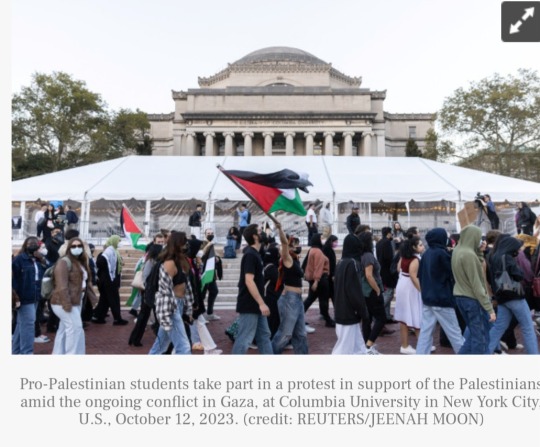
A scary time to be Jewish
For this Jewish New Yorker, it’s a scary time to be Jewish. The American Jewish Committee’s State of Antisemitism in America report found that 93% of American Jews surveyed think antisemitism is a problem in the United States and 86% believe antisemitism in the country has increased over the past five years.
In November, I attended the March for Israel in Washington. Around me were Jewish people from Atlanta, Chicago, Houston, New Orleans, Philadelphia, Richmond, San Diego, and Queens. A man from Brooklyn put tefillin (phylacteries) on me; it was the first time I had worn tefillin in almost 20 years. I even got to meet Julia Haart and Miriam Haart from Netflix’s My Unorthodox Life, who grew up in a religious community not too far from me. While there, I realized this gathering had the most Jews I’ve been around since I was in Israel in 2006. It was the safest I had felt in years. But there were also allies, including Congressman Ritchie Torres and CNN contributor Van Jones. That day reminded me of why I am proud to be Jewish and why I cannot be silent about my Judaism any longer.
Since October 7, I have lost hundreds of followers on social media. I have received anti-Israel and anti-Jewish messages, even threats. But I am not alone. The AJC found that six in 10 people have come across antisemitic content online, and 78% of American Jews feel less safe as Jews in the United States since that horrific day.
To many of us, the current climate feels different. We’re feeling angry, confused, and isolated. In my lifetime, I have watched the nation unite after domestic and foreign terrorist attacks, social justice actions, and wars. Rarely, outside of politics, have I seen us this divided: the Jewish community against everyone else. Overnight, people who had never spoken about any Middle Eastern wars became experts on the conflict. Disinformation spread like wildfire across social media, and much of it felt aimed at damaging or discrediting Jews and Zionists. Almost immediately after October 7, it was not only taboo to express sympathy for the Israelis who were captured or murdered; it was discouraged and forbidden, often met with attacks, both physical and verbal.
BUT THROUGH these painful months, there have also been glimmers of light.
During this period of mourning, I have watched people of all backgrounds come together – to educate, to grieve, to hope, and to pray. A Christian connection on social media thanked me for sharing educational resources. Jewish friends from elementary school and high school reached out. A Muslim friend held my hand as I cried, and another has been checking on me periodically for months. These are the moments I have chosen to cling to.
Our future is not where one side loses and another wins. It’s where we all unite.
The writer is an award-winning communications strategist, data storyteller, purpose-driven marketer, and educator based in New York City. He often speaks about antisemitism, LGBTQ+ rights, and social justice issues.
63 notes
·
View notes
Text
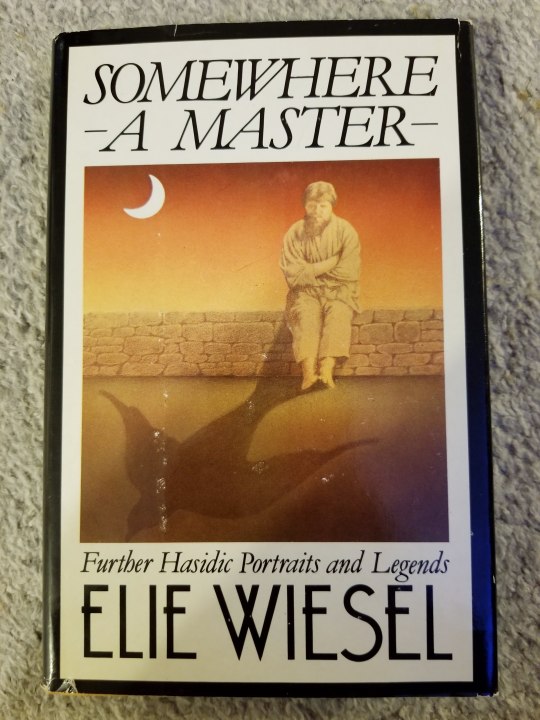
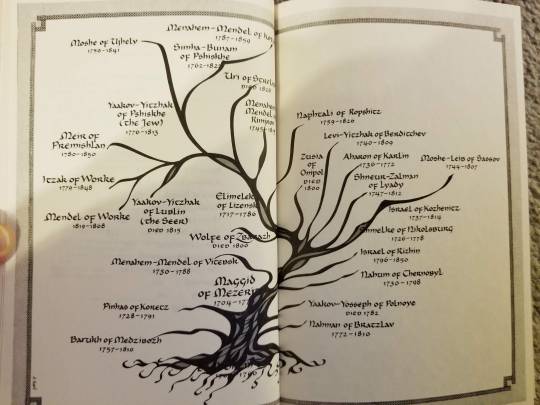
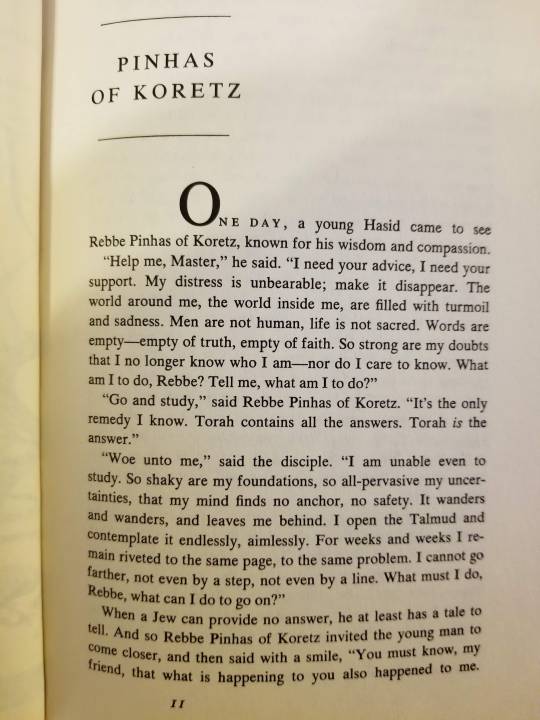
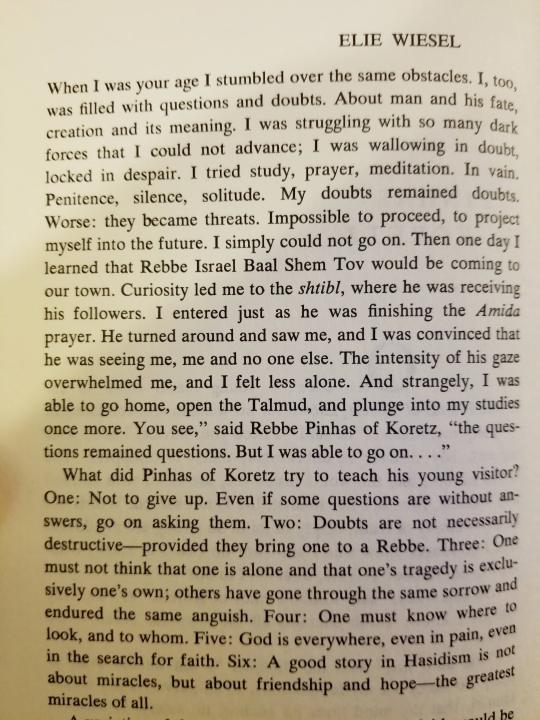
today i opened Elie Wiesel's second volume of portraits of 18th and 19th century Hasidic masters. and i came upon this story about Rebbe Pinhas of Koretz.
Wiesel's portraits continue to resonate through the years. and the wisdom they offer is more relevant now than ever.
as Wiesel says, "a good story in Hasidism is not about miracles, but about friendship and hope — the greatest miracles of all".
that's true of the Jewish community too. the Jewish community continues to be a place of friendship and hope in the face of darkness.
here is the full text of Wiesel's anecdote:
.
One day, a young Hasid came to see Rebbe Pinhas of Koretz, known for his wisdom and compassion.
“Help me, Master,” he said. “I need your advice, I need your support. My distress is unbearable; make it disappear. The world around me, the world inside me, are filled with turmoil and sadness. Men are not human, life is not sacred. Words are empty — empty of truth, empty of faith. So strong are my doubts that I no longer know who I am — nor do I care to know. What am I to do, Rebbe? Tell me, what am I to do?”
“Go and study,” said Rebbe Pinhas of Koretz. “It's the only remedy I know. Torah contains all answers. Torah is the answer.”
“Woe unto me,” said the disciple. “I am unable even to study. So shaky are my foundations, so all-pervasive my uncertainties, that my mind finds no anchor, no safety. It wanders and wanders, and leaves me behind. I open the Talmud and contemplate it endlessly, aimlessly. For weeks and weeks I remain riveted to the same page, to the same problem. I cannot go farther, not even by a step, not even by a line. What must I do, Rebbe, what can I do to go on?”
When a Jew can provide no answer, he at least has a tale to tell. And so Rebbe Pinhas of Koretz invited the young man to come closer, and then said with a smile, “You must know, my friend, what is happening to you also happened to me. When I was your age I stumbled over the same obstacles. I, too, was filled with questions and doubts. About man and his fate, creation and its meaning. I was struggling with so many dark forces that I could not advance; I was wallowing in doubt, locked in despair. I tried study, prayer, meditation. In vain. Penitence, silence, solitude. My doubts remained doubts. Worse: they became threats. Impossible to proceed, to project myself into the future. I simply could not go on. Then one day I learned that Rebbe Israel Baal Shem Tov would be coming to our town. Curiosity led me to the shtibl, where he was receiving his followers. I entered just as he was finishing the Amida prayer. He turned around and saw me, and I was convinced that he was seeing me, me and no one else. The intensity of his gaze overwhelmed me, and I felt less alone. And strangely, I was able to go home, open the Talmud, and plunge into my studies once more. You see,” said ready Pinhas of Koretz, “the questions remained questions. But I was able to go on.…”
What did Pinhas of Koretz try to teach his young visitor? One: Not to give up. Even if some questions are without answers, go on asking them. Two: Doubts are not necessarily destructive — provided they bring one to a Rebbe. Three: One must not think that one is alone and that one's tragedy is exclusively one's own; others have gone through the same sorrows and endured the same anguish. Four: One must know where to look, and to whom. Five: God is everywhere, even in pain, even in the search for faith. Six: A good story in Hasidism is not about miracles, but about friendship and hope — the greatest miracles of all.
#this was exactly what i needed to read today...#jewish history#jumblr#judaism#jewblr#jewish tradition#elie wiesel
84 notes
·
View notes
Text
List of books I read in 2023
Charlotte's Web by E.B. White
Slouching Towards Bethlehem by Joan Didion
The Maidens by Alex Michaelides
The Invisible Life of Addie LaRue by V.E. Schwab
The Broken Girls by Simone St. James
Women Talking by Miriam Toews
L'homme semence by Violette Ailhaud
Into the Darkest Corner by Elizabeth Haynes
A Farewell to Arms by Ernest Hemingway
Dark Places by Gillian Flynn
On Magic & The Occult by W.B. Yeats
Faithful Place by Tana French
The Secret Scripture by Sebastian Barry
Say Nothing: A True Story of Murder and Memory in Northern Ireland by Patrick Radden Keefe
Opened Ground: Selected Poems 1966-1996 by Seamus Heaney
The Love Object by Edna O'Brien
Don Quijote de la Mancha by Miguel de Cervantes Saavedra
Night by Elie Wiesel
In Between the Sheets by Ian McEwan
The Lost Days by Rob Reger & Jessica Gruner
Project Hail Mary by Andy Weir
As I Lay Dying by William Faulkner
Parallax by Sinéad Morrissey
The Woman in the Strongbox by Maureen O'Hagan
Diaries, 1910-1923 by Franz Kafka
The Nightingale by Kristin Hannah
Anne of Green Gables by L.M. Montgomery
We Were the Mulvaneys by Joyce Carol Oates
The Family Upstairs by Lisa Jewell
Walking to Martha's Vineyard by Franz Wright
A Tale for the Time Being Ruth Ozeki
Mouthful of Forevers by Clementine von Radics
Wasteland by Francesca Lia Block
The Fact of a Body: A Murder and a Memoir by Alexandria Marzano-Lesnevich
Find Me by André Aciman
The Awakening by Kate Chopin
The Grace Year by Kim Ligget
The Five: The Untold Lives of the Women Killed by Jack the Ripper by Hallie Rubenhold
A Good Girl's Guide to Murder by Holly Jackson
And Then There Were None by Agatha Christie
A Stolen Life by Jaycee Dugard
Coraline by Neil Gaiman
The Castle of Otranto by Horace Walpole
Mr. Mercedes by Stephen King
My Best Friend's Exorcism by Grady Hendrix
Psycho by Robert Bloch
Classic Tales Of Vampires And Shapeshifters by Tig Thomas
Love Devours: Tales of Monstrous Adoration by Sarah Diemer
Through the Woods by Emily Carroll
Fahrenheit 451 by Ray Bradbury
Putney by Sofka Zinovieff
The Woman in Me by Britney Spears
Wicked: The Life and Times of the Wicked Witch of the West by Gregory Maguire
Julius Caesar by William Shakespeare
The Maid by Nita Prose
A Little Princess by Frances Hodgson Burnett
The Deep by Rivers Solomon
You can follow me or add me as a friend on Goodreads.
58 notes
·
View notes
Note
hindsight I'd place the beginning of the 21st cen rise in antisemitism (and the rightwing swing of a LOT of countries) with the 2008 financial crisis and jews once again being scapegoats. I remember the how europe suddenly starting swinging right, jewish people leaving paris in droves, a massive increase in hate crimes. A lot of this was like, background news in reports on NPR and other places, too, obvious if you knew how to listen. And then the US congress swung right and we got trump.
yeah, I think there are a lot of factors, I think as we moved into the 21st century a lot of the Holocaust generation started to fade away, Simon Wiesenthal the great Nazi hunter passed away in 2005, Elie Wiesel the great author of the Shoah was a child when he was liberated and passed away in 2016.
Today all that's left is people who were very small children at the time and a few very old very frail people
past which the non-Jews who fought fascism, or lived under it are fading away as well, the 80th anniversary of D-Day was a few days ago, to have been an 18 year old on those beaches you'd have to be 98 years old today, most of the small number of Vets who were brought over on a specialized flight were over 100 years old.
I think in the 1990s and early 2000s there was a lot of button pushing, boundary pushing humor? things like South Park or Family Guy that really went in on racial humor, and people ironically or for "shock" value did stuff with Nazi imagery (Jeffery Starr comes to mind) and thing that brought into being people being "ironically racist" in unregulated spaces on-line.
I think the War in Iraq, and the lies about WMD and then the 2007-08 crisis and crash being driven in many ways by government policies, together with the internet allowing conspiracy minded people to better connect lead to a great distrust of government, and conspiracy thinking which together with economic hardship, and the old racist rival and freak out about the black President mixed with those "ironic" racist spaces online to become a meeting and mixing space for a lot of young conservatives and then...
Trump and he was everything they wanted, they busted out of their on-line caves like a Doctor Pimple Popper video and now good luck finding anyone under 35 who works in Republican politics professionally who isn't a Neo-Nazi, as see by that add with Trump "uniting the Reich" in the background, some video guy put that in to impress his pals in some racist chatroom I'd bet most of my fingers.
I think of course this hasn't been a right wing only thing. And I say this all the time, antisemitism doesn't stay in one place, if right wingers are saying it or left wingers the other side hears it, and picks it up and boosts it and its all one thing. And I think there were and are lots of young people on the left frustrated by authority, primed up to believe in a rigged system, and all that means it's easy to blame the Jews. "Why don't we have health care?" "the Jews took all the money" you're hearing that rn and not just in the US, the leader of the French far-left, Jean-Luc Mélenchon, has said some bonkers things about Jews, in 2020 he said "I don't know if Jesus was on a cross, but he was apparently put there by his own people" in 2020, a French socialist was calling Jews Christ Killers....
20 notes
·
View notes